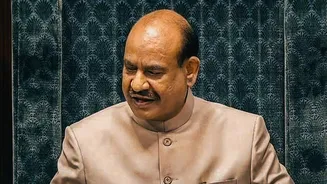Shared Understanding
The strong India-Bhutan relationship stems from a foundation of mutual respect and a shared understanding of each other's interests. Bhutan, a landlocked
nation, relies on India for access to the sea and also for crucial economic assistance. India, on its part, sees Bhutan as a strategically important neighbour, ensuring a buffer against potential threats from the north. This strategic alignment, coupled with cultural and historical connections, has fostered an environment of trust. Both countries cooperate on various fronts, including defence, infrastructure development, and education. This collaboration is not just beneficial for both governments, but it also reflects a commitment to the well-being of their citizens. The shared history and understanding serve as a crucial basis for resolving issues that may arise in their relations.
Economic Partnership Flourishes
Economic cooperation is a central pillar of the India-Bhutan relationship. India provides significant financial support to Bhutan, aiding in its infrastructure development and economic growth. This support includes funding for hydroelectric projects, which are a major source of revenue for Bhutan. Trade between the two countries is robust, with India being Bhutan's largest trading partner. Beyond financial aid, India assists in building roads, hospitals, and schools. These projects are not merely about economic growth; they contribute to an improved quality of life for Bhutanese citizens. Furthermore, both countries actively seek to strengthen their economic ties through various trade agreements and investment strategies. The economic interplay is not a one-way street; it fosters a symbiotic relationship where both countries benefit from each other's resources and opportunities.
Security and Defence Ties
Security cooperation forms another vital aspect of the India-Bhutan relationship. India provides military training and assistance to the Royal Bhutan Army. They share intelligence information and coordinate on border security matters. These efforts are particularly important given Bhutan's proximity to sensitive regions. Both nations recognize that regional stability is in their mutual interest, and they work together to ensure peace and security. The robust defence cooperation includes joint exercises and the sharing of military expertise. India's commitment to Bhutan's security has been unwavering, contributing significantly to Bhutan's sovereignty. This strong security partnership is crucial for managing the geopolitical realities of their shared border and beyond, ensuring a stable environment for economic and social development.
Cultural and People-to-People Links
The strong cultural and people-to-people connections also play a significant role in the India-Bhutan bond. There is substantial cultural exchange, with Bhutanese people often studying and working in India and vice versa. This ongoing interaction fosters mutual respect and understanding. These cultural links enrich both societies, with shared traditions and values creating deeper connections. The proximity of the two countries makes it easy for Bhutanese people to visit India for tourism, medical treatment, or educational purposes. Educational exchanges, cultural programs, and collaborative art projects are common. This constant interchange is not just a diplomatic perk; it builds bridges between the people of both nations, strengthening the overall relationship and promoting harmony. These connections foster a sense of familiarity and trust.
Lessons for Diplomacy
The India-Bhutan relationship provides valuable insights into how to cultivate successful partnerships in a challenging regional context. Key takeaways include the importance of mutual respect, a shared understanding of strategic interests, robust economic cooperation, and strong security ties. It underlines the value of cultural and people-to-people connections. Nations can learn from this model by prioritizing dialogue, focusing on shared goals, and investing in long-term relationships. These factors have contributed to the enduring stability and prosperity of both countries. By understanding these dynamics, other nations can apply similar principles to foster peaceful and productive relationships, even amidst complex geopolitical challenges, creating a foundation of trust and collaboration that serves the common good.













